Mr. Nguyen Van Duc (born in 1984), residing in Nghen town (Can Loc - Ha Tinh) owns a civet farm with a scale of nearly 700 civets, bringing in billions of dong in revenue each year.
Mr. Nguyen Van Duc's Duc Thang civet farm is about 1 hectare wide and is located in Anh Hung village (Thuong Loc commune, Can Loc district, Ha Tinh). With 2 cages with an area of over 500 m2 , he is currently raising about 700 civets, mainly for breeding to sell the offspring to the market.
Before raising, Mr. Duc had time to learn and gain experience at civet farms in the South. In 2019, with a license from the authorities, he bought 50 breeding animals to raise. At first, he encountered many difficulties, but thanks to good application of techniques, the civet herd has grown day by day. Mr. Duc has invested billions of dong to build a modern, closed cage system.
The cage is designed as an iron cage about 70cm high, about 1m2 wide depending on the number of animals kept. The iron cage is arranged on a stand 0.3-0.5m from the floor to keep it airy, avoid humidity and make it easy to clean the cage.
Cameras and thermometers are installed in the cage. The cage is divided into separate areas: individual breeding area, breeding area for married mink couples, breeding area for newborn mink... Depending on the stage of development, minks will be kept in cages at a ratio of 1-2 or more minks.
“ The most difficult thing about raising civets is that when they get sick, there is no specific medicine. Therefore, the most important thing in raising civets is that the cage system must be airy, cool in the summer, warm in the winter and always clean. The person taking care of the civet must understand the characteristics of the species, know the personality of each animal to have the appropriate care method ,” said Mr. Duc.
The main food of civets is ripe bananas, river fish, shrimp, and field crabs. They are fed once a day in the afternoon. Due to their wild nature, civets usually sleep during the day and only wake up in the afternoon and at night to look for food.
According to calculations, the cost of food for civets per day is only about 2,000 - 3,000 VND/animal, and many households can even raise them in a closed, self-sufficient manner to minimize costs.
Drinking water for ferrets must be clean and carefully treated to avoid diseases related to the intestinal tract.
On average, each year, a mother mink can give birth to 2-3 litters, each litter has 2-5 babies. Breeding mink can be sold for 6-8 million VND/pair after 2 months, 8-10 million VND/pair after 3-4 months, and commercial civets cost between 1.5-1.9 million VND/kg. In 2022, Mr. Duc's farm sold 600 breeding civets, earning billions of VND.
Mr. Duc shared: “ Civets are processed into delicious specialties, with sweet and soft meat, so they are very popular in restaurants and hotels. Currently, the market demand for civets is very large, traders from various places have contacted to order civets for breeding and civet meat in advance, but we do not have enough supply .”
In the past, Mr. Duc has provided seeds and enthusiastically provided technical guidance to many other farmers to replicate this model. Many people have come to his farm to learn his experience and farming techniques.
Next year, Mr. Duc plans to build more cages and raise about 800 more civets to meet market demand.
There are currently 6 licensed civet farms in the district, of which Duc Thang farm owned by Mr. Nguyen Van Duc is the largest. Through inspection, Mr. Duc's farm purchased breeding animals from legal breeding farms, with clear origins. During the breeding process, his family kept a logbook and regularly reported fully to the authorities.
Ngoc Thang - Dan Phuc
Source



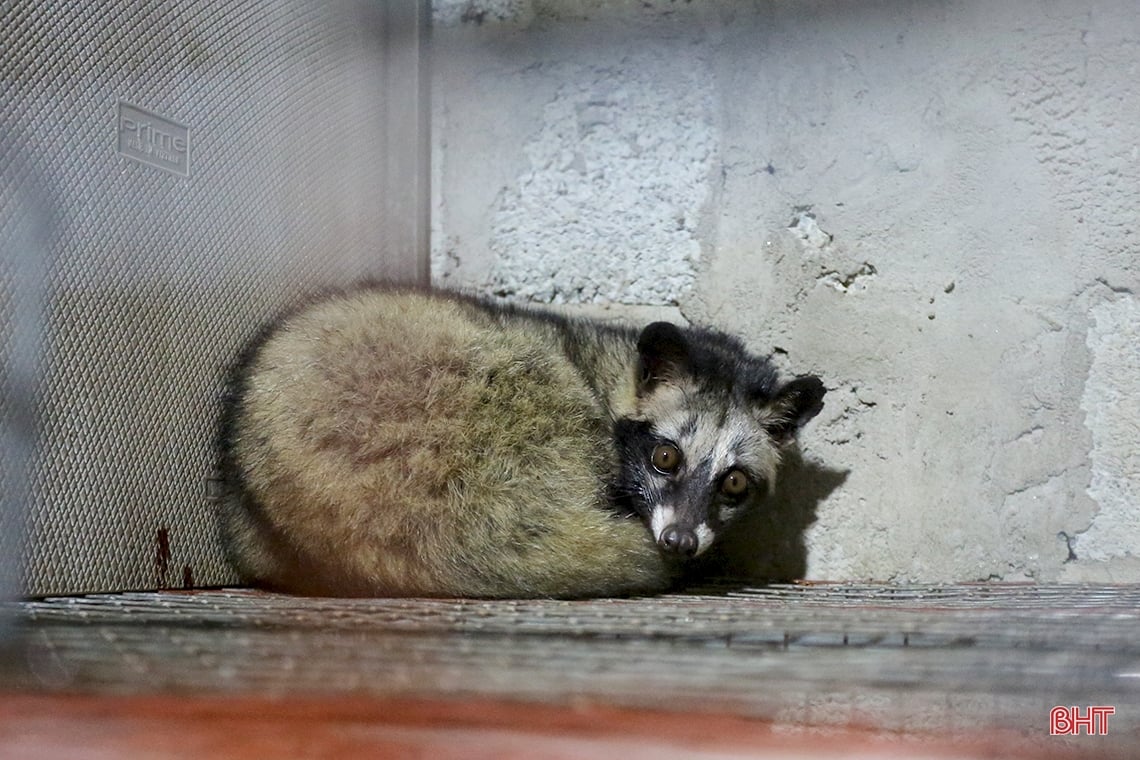
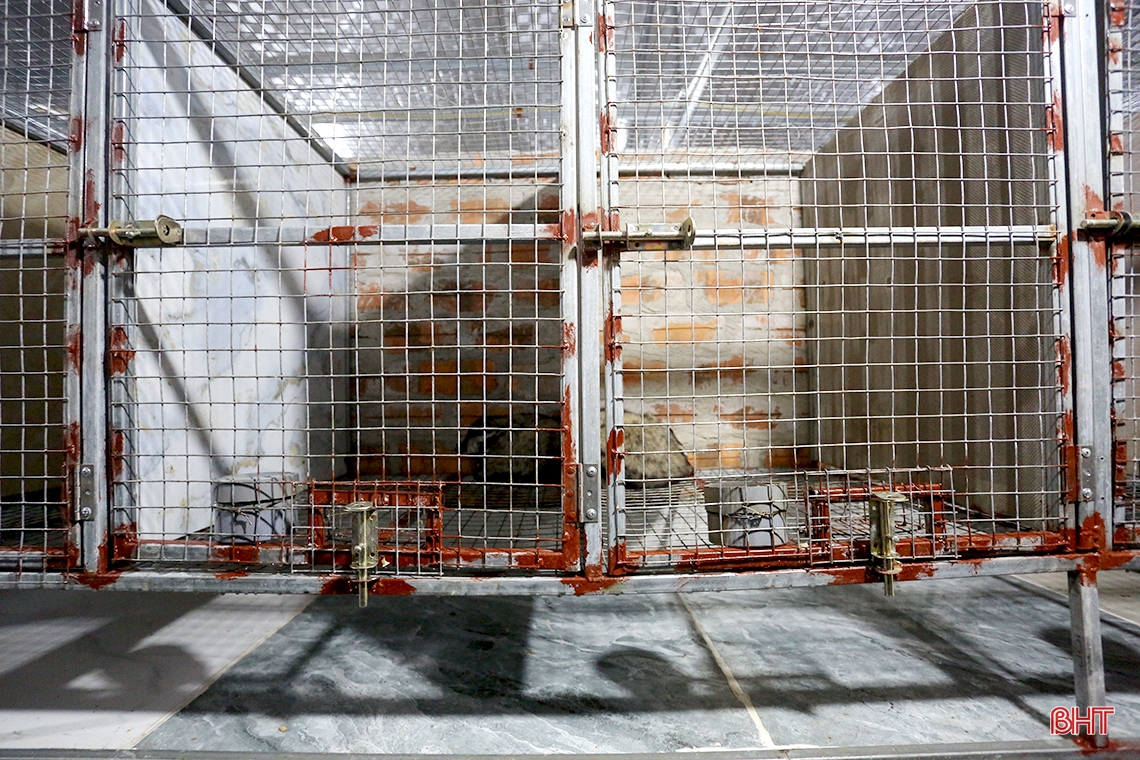
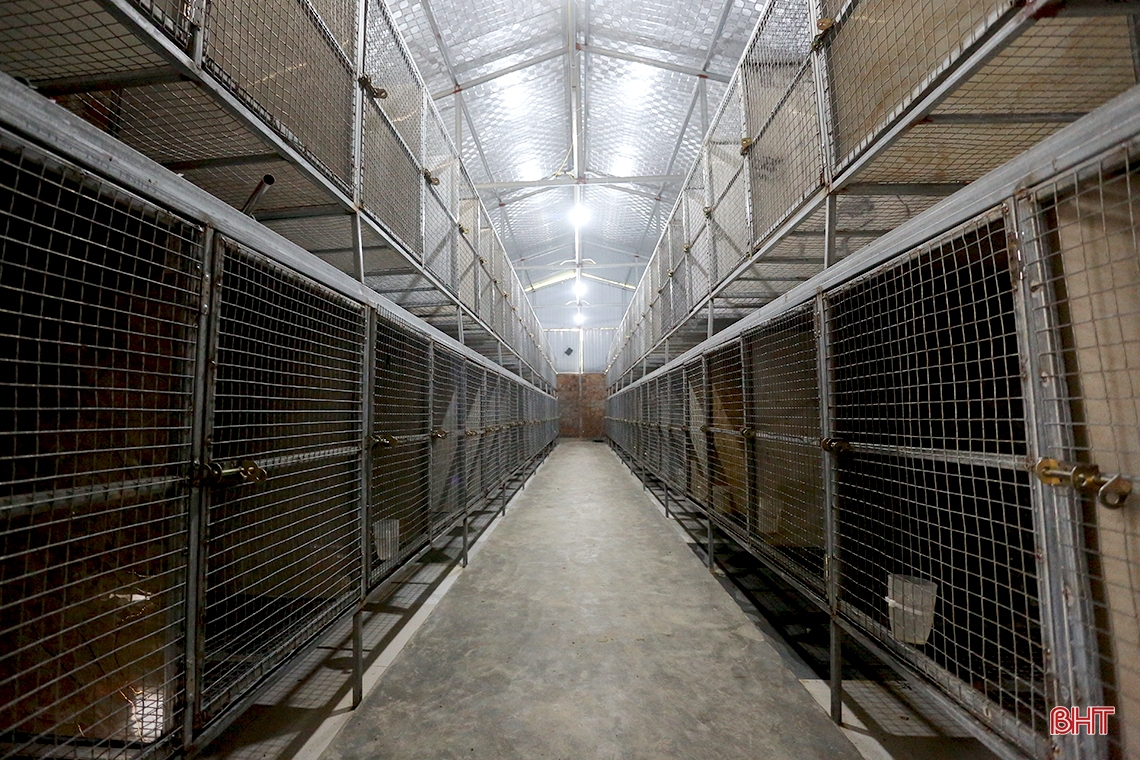
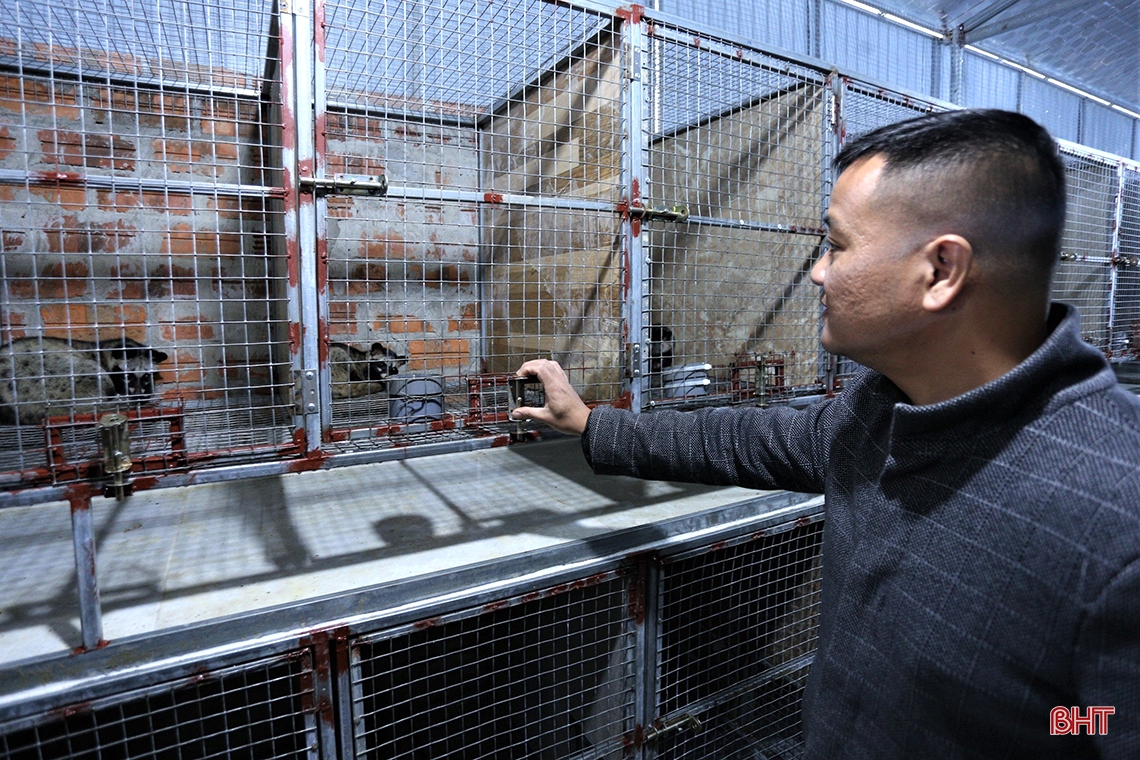
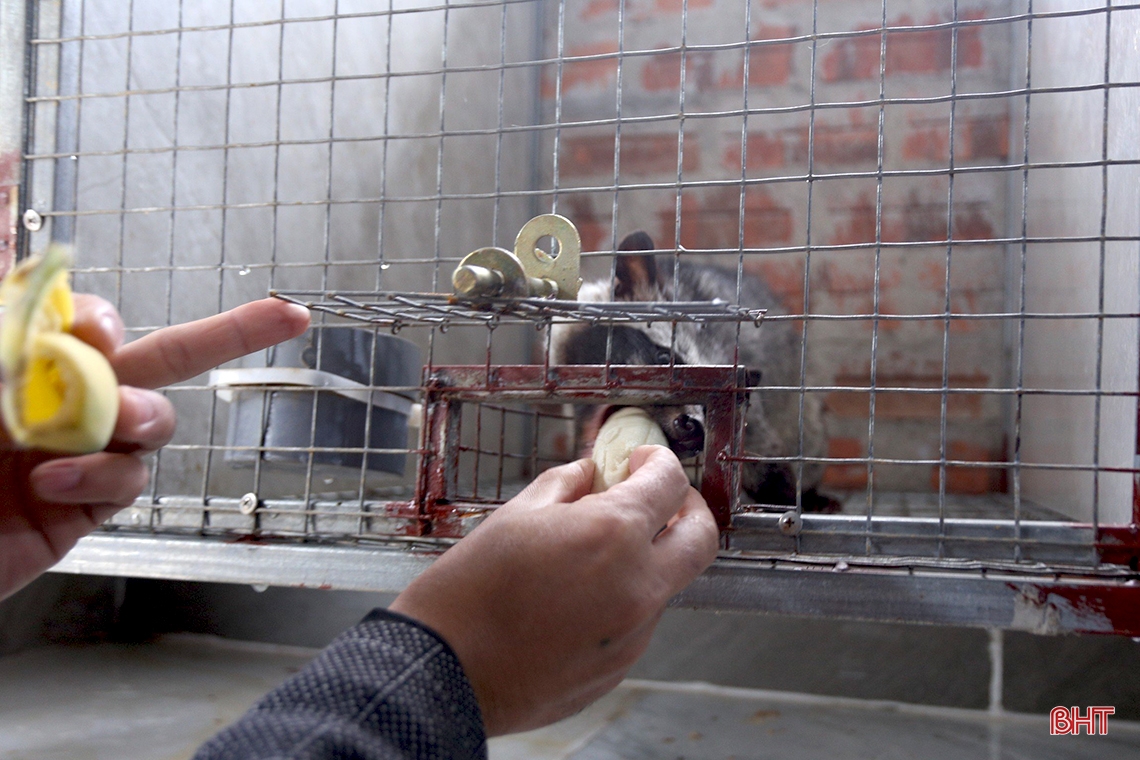
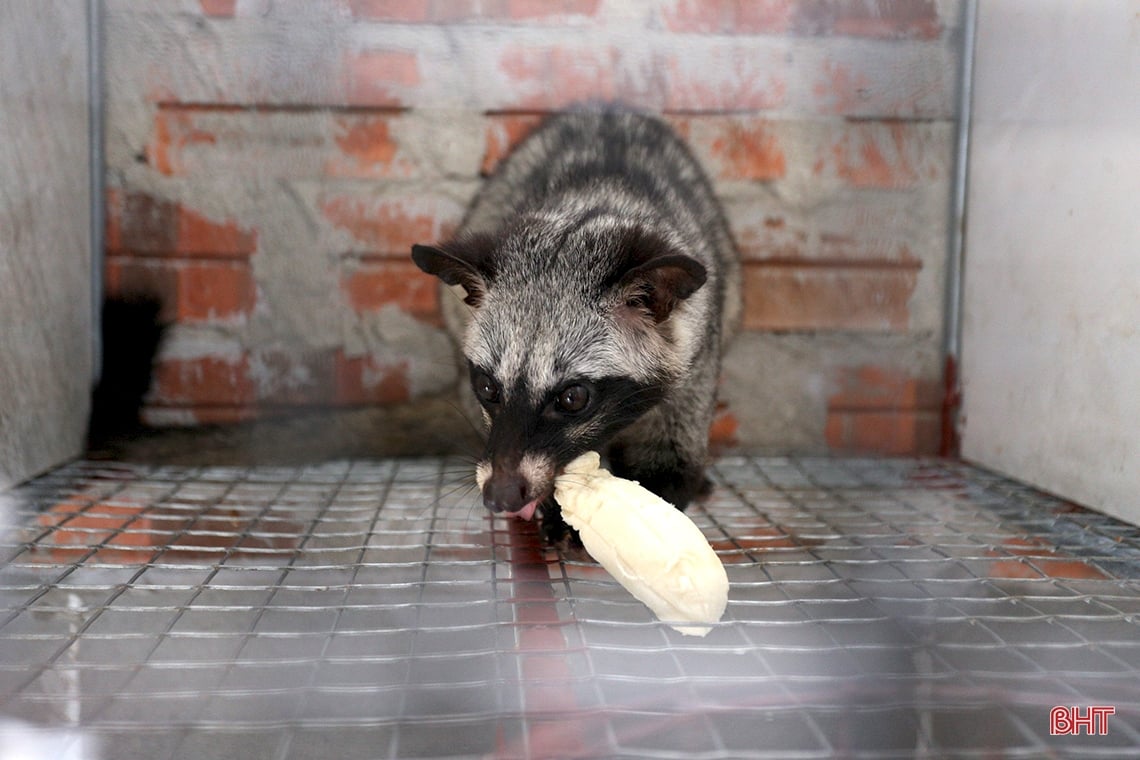
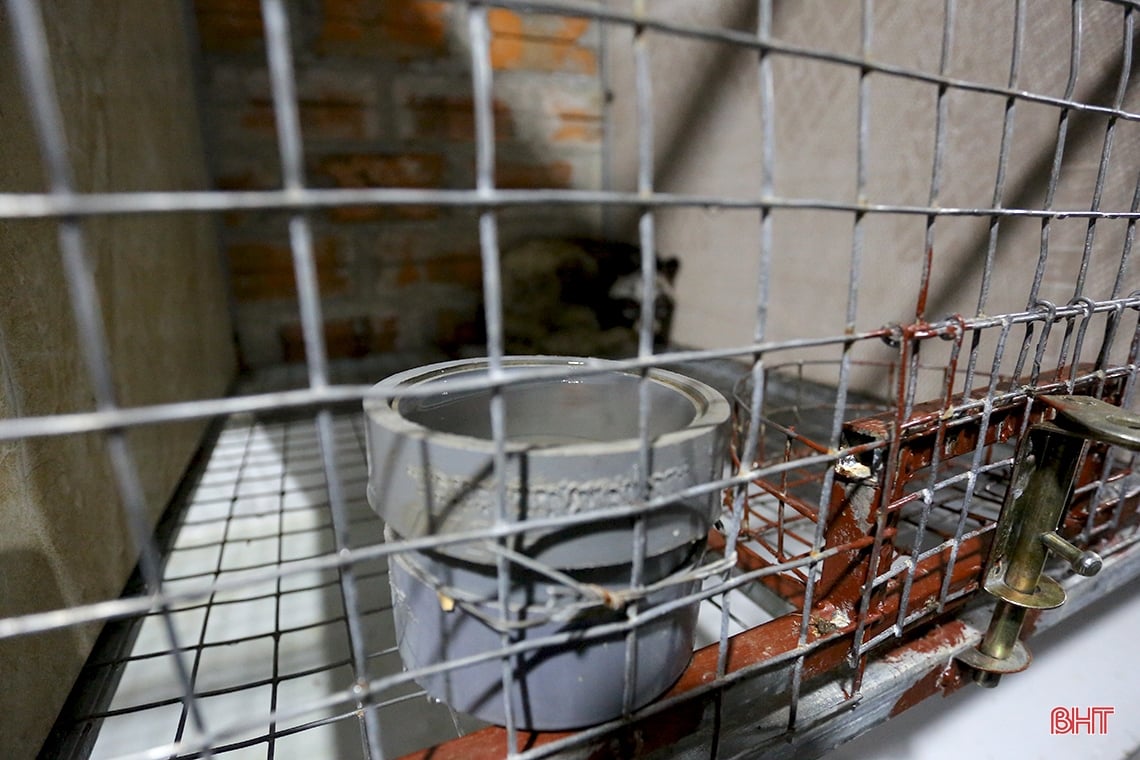
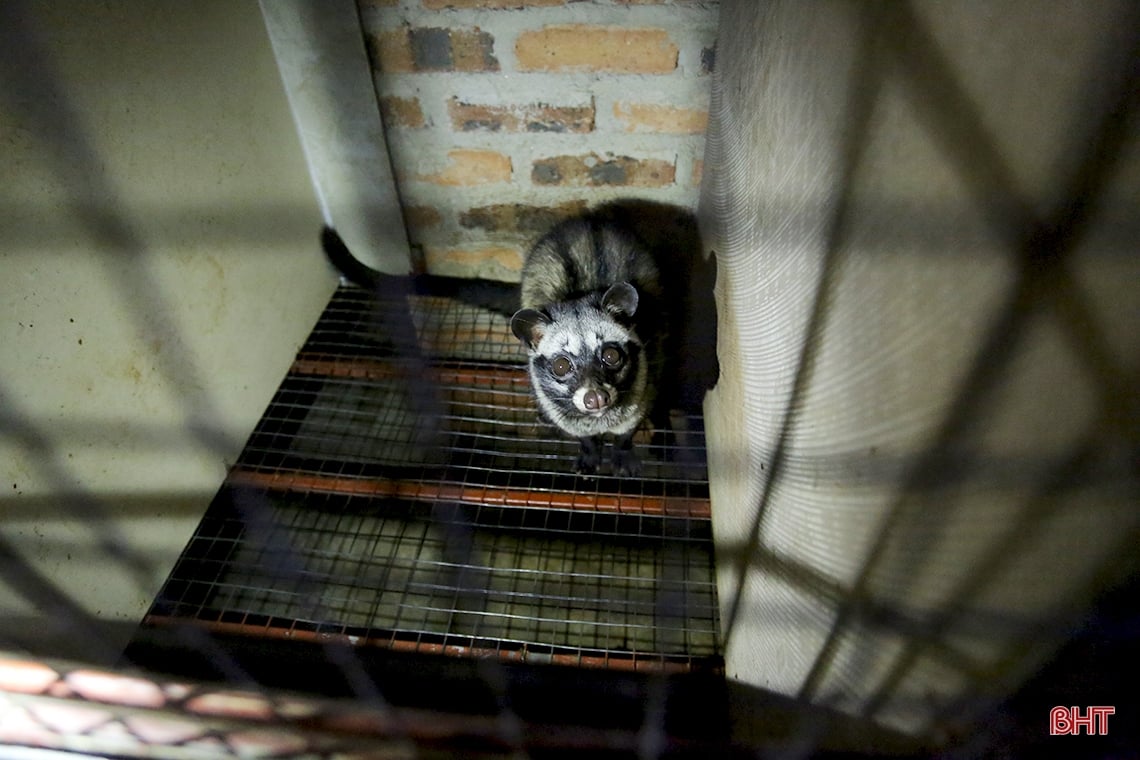
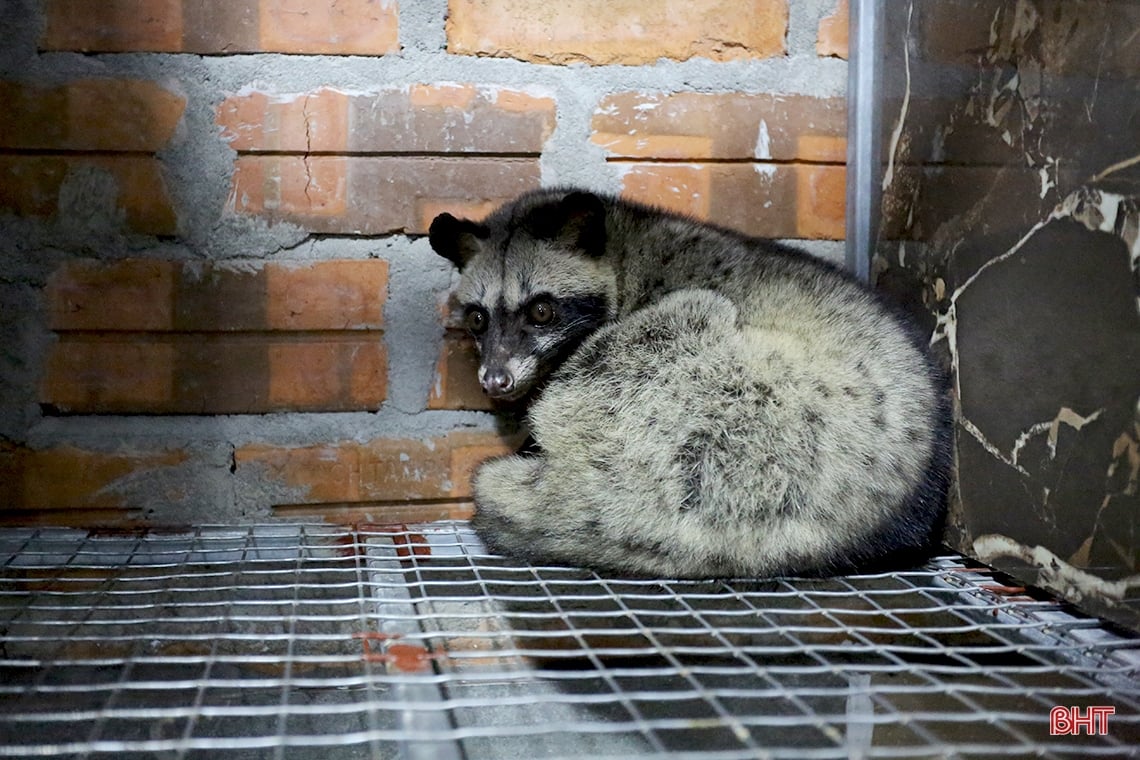
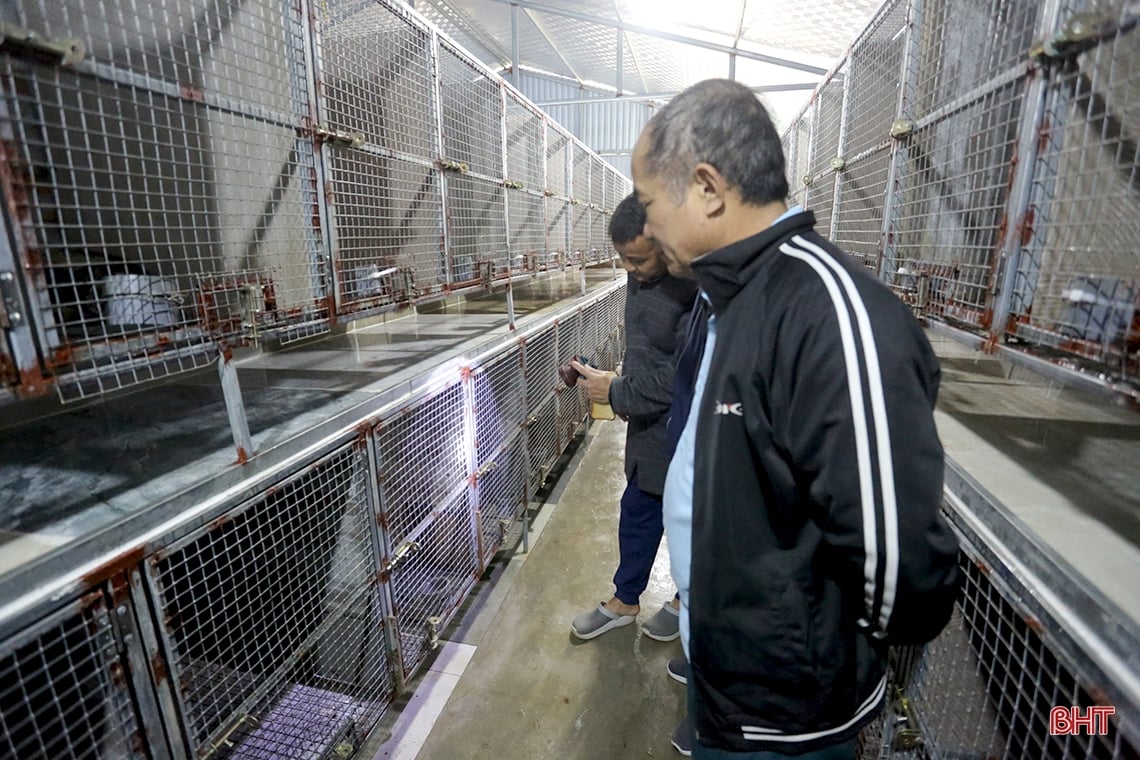
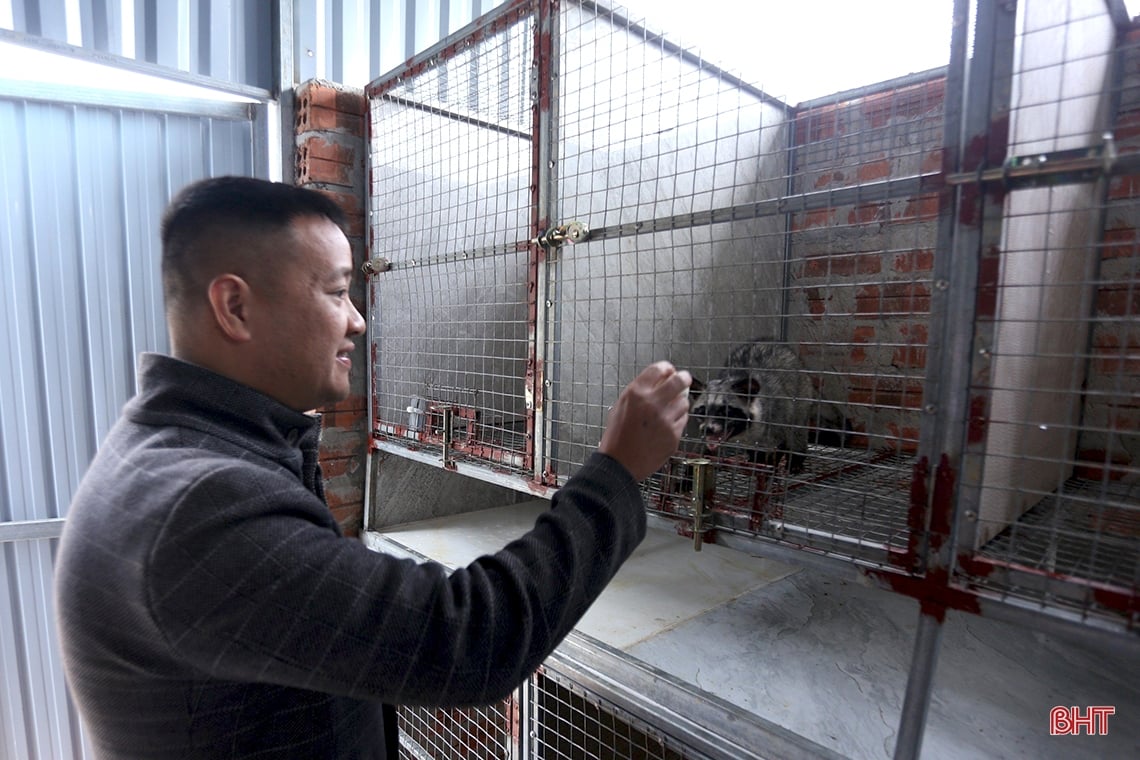
![[Photo] Overcoming all difficulties, speeding up construction progress of Hoa Binh Hydropower Plant Expansion Project](https://vstatic.vietnam.vn/vietnam/resource/IMAGE/2025/4/12/bff04b551e98484c84d74c8faa3526e0)
![[Photo] Closing of the 11th Conference of the 13th Central Committee of the Communist Party of Vietnam](https://vstatic.vietnam.vn/vietnam/resource/IMAGE/2025/4/12/114b57fe6e9b4814a5ddfacf6dfe5b7f)




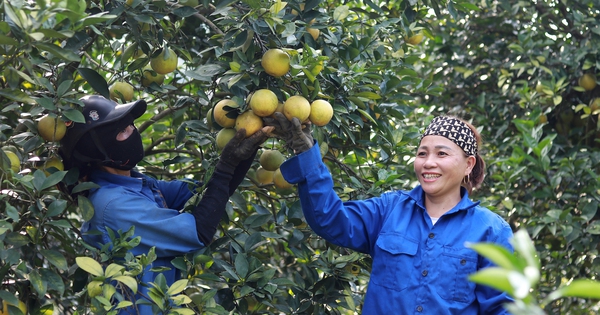
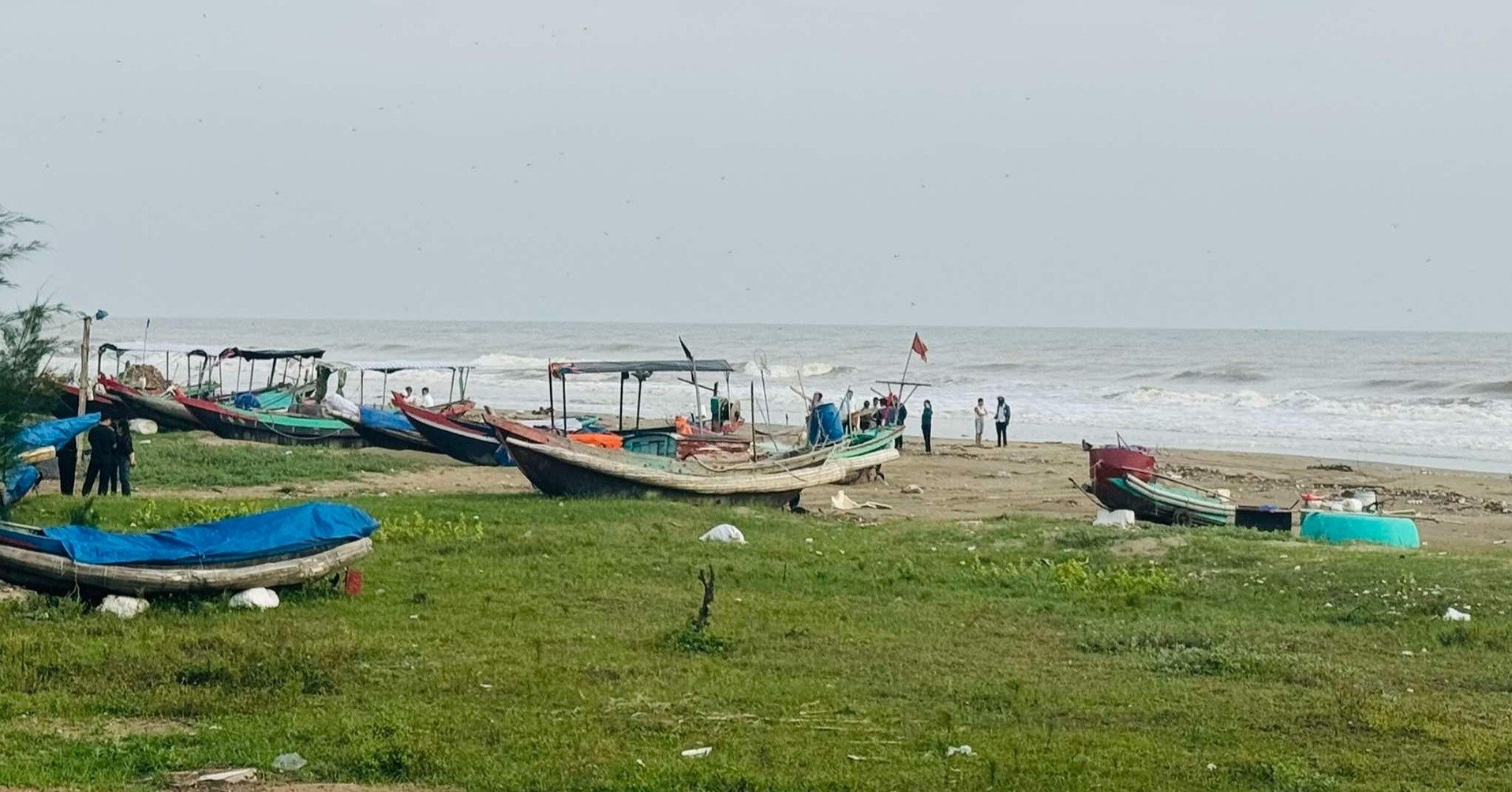



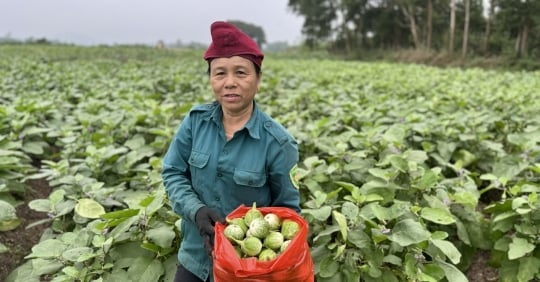

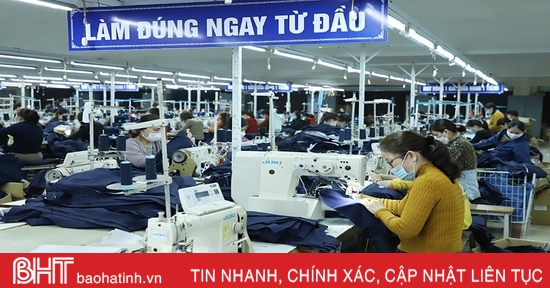










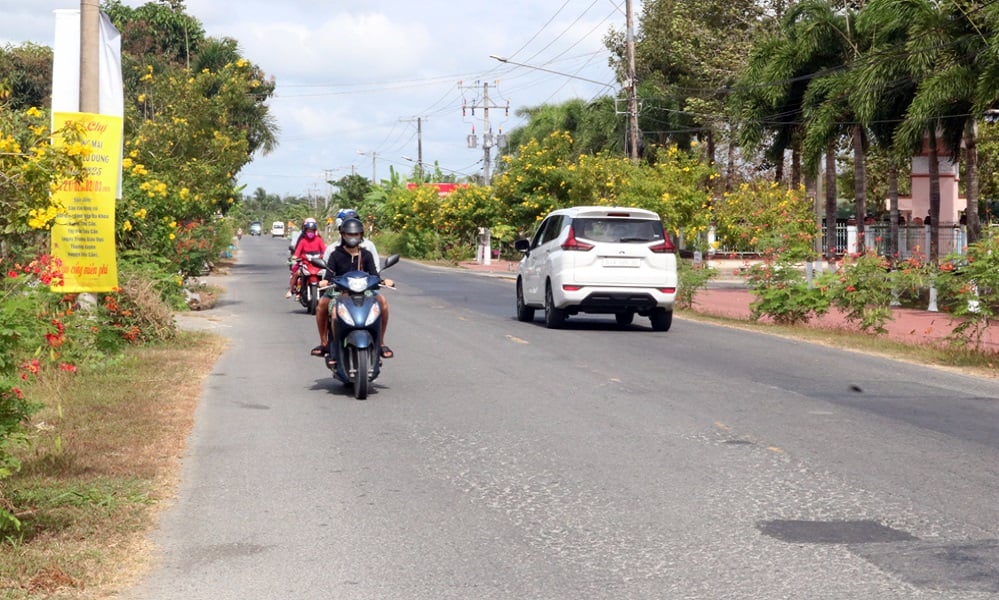



































































Comment (0)